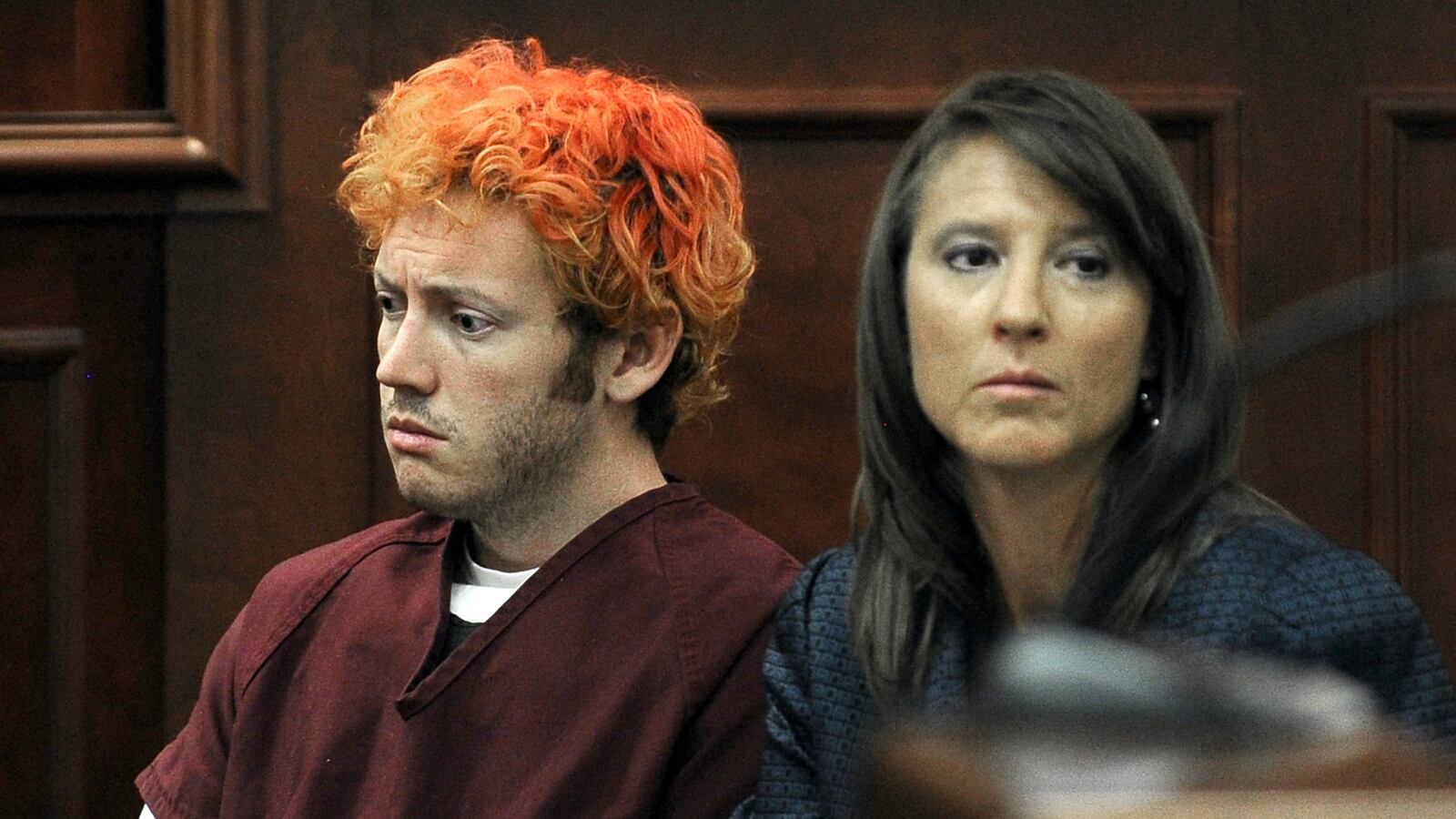CENTENNIAL, COLORADO — James Holmes was found guilty of first-degree murder and attempted murder by a jury in the 2012 Aurora theater massacre largely thanks to hours of recorded discussions between Holmes and a court-appointed psychiatrist.
“They really listened to the evidence and they understood from the evidence that he is far from insane,” Sandy Phillips told The Daily Beast. Phillips is the mother of Jessica Ghawi a young journalist who was one of the first killed in the theater. Phillips has been in the court room for the trial every day but one.
Phillips said the defense has done a real disservice to the mentally ill in their attempt to paint Holmes as insane.
“To make it seem that to have a mental illness you can be a murderer, is stretching it,” said before the verdict was read. “Most (people who are mentally ill) hold down jobs, and have lives, and function just fine in our society.”
Marcus Weaver, who was shot in the arm during the attack, was anxious in the minutes before the verdict. He spoke to The Daily Beast from the courthouse and said although he is typically anti-death penalty, he’s not today.
“In this particular case, what other consequence fits the crime of what he did,” he said. “I feel sorry for his family, the DA, for everyone involved in this but it was a cowardly act and there are consequences for every action.”
Weaver said he does forgive Holmes but also thinks that Holmes knows the difference between right and wrong.
Whether or not Holmes shot 12 people and injured 70 during a midnight movie premiere of The Dark Knight Rises wasn’t ever in doubt: the defense admitted Holmes committed the shooting. What they argued though is that Holmes was not guilty by reason of insanity.
Colorado is one of only 11 states where the burden of proof rests on the prosecution to prove the defendant was sane at the time of the crime when an insanity plea is entered. Usually, the burden of insanity rests on the defense counsel. The prosecution was able to prove their case by using Holmes’s own words against him.
Holmes told psychiatrist Dr. Lynne Fenton he had intrusive and impulsive thoughts about killing people. When the psychiatrist asked what the intrusive thoughts were, Holmes said, “That I should shoot as many people as possible.” In the videos, Holmes appeared emotionless, his voice flat and monotone. He said he was also bombarded with images of people getting their heads sawed off.
Holmes said according to a transcript that each life he took was worth a point. These “points” he earned gave points to his own life, thus earning him more value as a human being. After the massacre, he claimed he raised his “life capital” to 13. This made him more superior than a regular person whose “life capital” is only a 1.
This admission may be responsible for the guilty verdict. Fenton testified in court, that Holmes’s thoughts, though warped, show he killed for a reason and therefore prove he is sane.
Holmes also admitted to having a hatred of mankind and to being paranoid. He said that when he was walking into the theater he was under the belief that he was under surveillance of the FBI, and said he hoped he was so that the agents would stop him.
A notebook in which he explained his actions was also shown to the jury. In a passage titled “Insight into the Mind of Madness,” Holmes wrote that he created a formula in which life and death cancel each other out. Holmes also created a symbol he called “Ultra-ception,” a combination of an infinity sign and the face of a space alien. The meaning of the symbol, he explained, is that “any problem can be solved with death.”
In the notebook, Holmes said he debated becoming a serial killer but concluded that leads to being caught too easily and that it doesn’t result in enough death. Even though Holmes did not testify, he repeatedly admitted guilt on video and in writing.
Holmes will now go to a sentencing trial. The prosecution has asked the court that he be put to death.
Photos: Scenes From the Aftermath of Colorado’s ‘Batman’ Shooting




